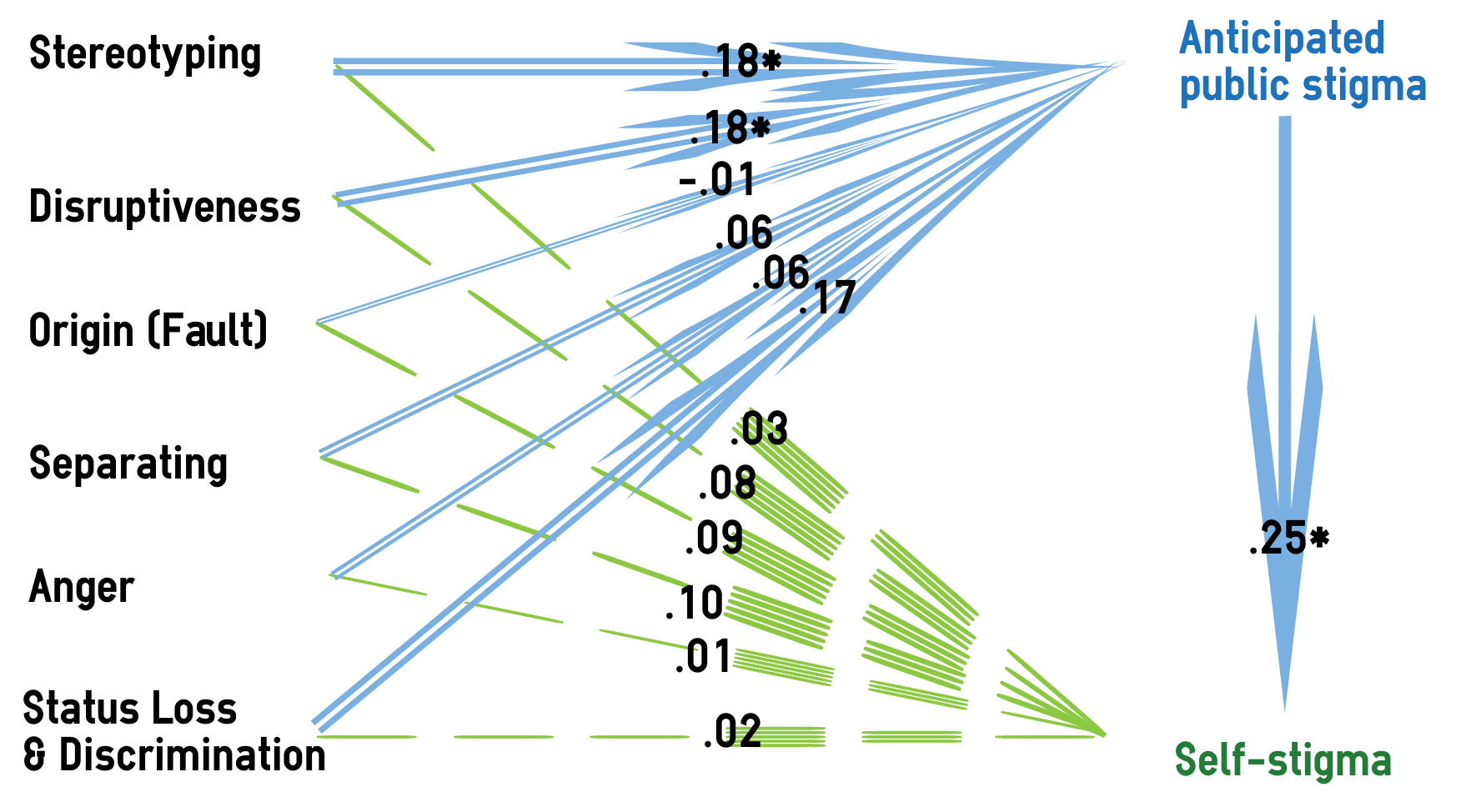The WAGER, Vol. 22(13) – Gambling disorder: Self-stigma and anticipation
How society views people with addiction can produce complex consequences. Anticipating stigmatization might lead a person to deny their illness, avoid treatment seeking, or prematurely end treatment services. Self-stigmatization, when a person begins to internalize the stigmas associated with their condition, might amplify these fears and lead people to reject social support and treatment. This week, The WAGER reviews a study by Nerilee Hing and Alex Russell that explores how the anticipation of stigma influences self-stigma among people with gambling-related problems.
What is the research question?
What aspects of public attitudes toward problem gambling contribute to public stigma? How do these public attitudes, and public stigma, relate to self-stigma?
What did the researchers do?
The researchers recruited 177 respondents via two recruitment methods: (1) by inviting participants from a database of Australian gamblers who previously completed surveys with the researchers, and (2) through Google advertisements. All participants reported gambling-related problems on the Problem Gambling Severity Index (PGSI). The researchers assessed many aspects of anticipated public attitudes about problem gambling. First, a questionnaire asked participants about common stereotypes of people with gambling-related problems and the extent to which most people would separate from, look down on, or feel anger toward people with gambling-related problems (i.e., separate, status loss, anger). Second, a questionnaire asked participants how strongly most people would “think that being a problem gambler disrupts the person’s life” (disruptiveness) and “think that becoming a problem gambler is the person’s own fault” (origin). Finally, the researchers assessed how much stigma participants thought most people attach to problem gambling (anticipated public stigma) and bad feelings about their own gambling (self-stigma). The researchers used bivariate correlation and mediation analyses to learn how aspects of anticipated attitudes about problem gambling related directly to anticipated public stigma and indirectly to self-stigma.
What did they find?
Participants who anticipated a high amount of public stigma about problem gambling reported high self-stigma. In the mediational model, stereotyping and disruptiveness were particularly important. Participants who thought that most people (1) hold negative stereotypes about people with gambling-related problems and (2) think that being a problem gambler disrupts a person’s life also thought most people attached a lot of stigma to problem gambling; as a result, they felt a high degree of self-stigma (see Figure 1).1
 Figure. This figure represents a path analysis, with aspects of anticipated public attitudes about problem gambling on the left hand side and kinds of stigma on the right hand side. Numbers represent standardized coefficients. Coefficients marked by an asterisk are statistically significant. The green paths, marked by broken arrows, represents how well the aspects of anticipated public attitudes about problem gambling predicted self-stigma. The blue paths, marked by solid arrows, represents how well the aspects of anticipated public attitudes about problem gambling predicted self-stigma when anticipated stigma is included as a mediator. This figure has been adapted from Figure 2 in the original study. Click image to enlarge.
Figure. This figure represents a path analysis, with aspects of anticipated public attitudes about problem gambling on the left hand side and kinds of stigma on the right hand side. Numbers represent standardized coefficients. Coefficients marked by an asterisk are statistically significant. The green paths, marked by broken arrows, represents how well the aspects of anticipated public attitudes about problem gambling predicted self-stigma. The blue paths, marked by solid arrows, represents how well the aspects of anticipated public attitudes about problem gambling predicted self-stigma when anticipated stigma is included as a mediator. This figure has been adapted from Figure 2 in the original study. Click image to enlarge.
Why do these findings matter?
Internalizing stigma is painful and consequential. Although there is effective treatment for gambling problems, people might avoid seeking help because they expect others will judge them. This study suggests that some aspects of anticipated public attitudes are especially important. Some people experiencing problem gambling expect that most people will hold a range of negative stereotypes about them and consider problem gambling to be highly disruptive. Sharing stories about the actual, lived experiences of people with gambling-related problems might help to de-stigmatize the condition and encourage more help-seeking.
Every study has limitations. What were the limitations in this study?
This study was meant to explore the relationships between various aspects of stigma and therefore contributes ideas for future research. Exploratory studies are not guided by hypotheses, and further research is needed to determine whether the findings are replicable. Additionally, the authors note that their results might have been biased by the use of both an online sample and a convenience sample. The results might be different if this study were replicated with people without internet access and people who were taken at random from the population.
For more information:
There’s strength in reaching out. Call or text the National Problem Gambling Helpline at (800)522-4700 or chat with a counselor online.
— Pat Williams
What do you think? Please use the comment link below to provide feedback on this article.
________________
1The researchers also controlled for age, gender, and PGSI score.